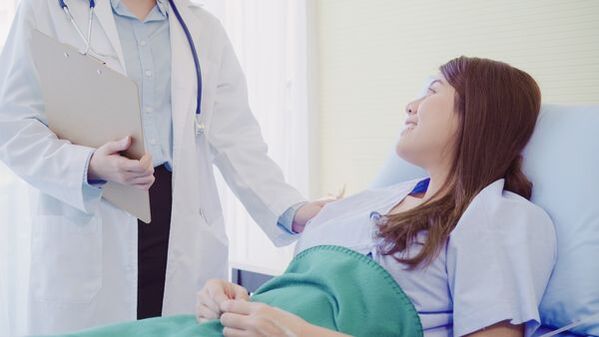
This is an unpleasant disease that women suffer from more often. Cystitis occurs due to inflammation of the mucous membrane of the bladder, which occurs against the background of a bacterial infection.
Urological disease can become chronic without treatment and lead to changes in the tissue of the bladder, provoking the development of serious diseases.
Causes of cystitis
The causes of cystitis can also be a decrease in general immunity, chronic stress, the beginning of sexual activity, narrowing of the urethra, hypothermia, stagnation of urine in the bladder (the habit of holding on to the last), unbalanced nutrition, hormonal disorders, pregnancy, childbirth, operations of the organs of the excretory system.
Another reason is medication. The causes of cystitis can also be a decrease in general immunity, chronic stress, the beginning of sexual activity, narrowing of the urethra, hypothermia, stagnation of urine in the bladder (the habit of holding on to the last), unbalanced nutrition, hormonal disorders, pregnancy, childbirth, operations of the organs of the excretory system.
Bladder inflammation can also cause the body to react to certain allergens. Cystitis is most common in women. This is due to the physiological features of the female sexual structure. The urethra is near the entrance to the vagina and anus. That is why it is very important to constantly monitor the quality of intimate hygiene.
Symptoms of cystitis
- frequent urge to urinate - during the process of urination, pain and burning in the urethra may appear, as well as a feeling of incomplete bowel emptying.
- pain in the lower abdomen - there is a feeling of overcrowding of the bladder. And also a sign of cystitis is itching and burning in the perineum. In some cases, patients do not attach importance to pain and discomfort if they are not too pronounced. This can lead to chronic illness and complications.
- the appearance in the urine of pathological impurities (mucus, blood, pus) - the color of the urine can be from pale pink to brick. The presence of impurities indicates the presence of a virus in the human body. With the development of cystitis, acute pain may appear in the urethra.
How does cystitis manifest itself during pregnancy?
During the period of childbirth, the protective functions of a woman's immune system decrease. Therefore, getting into the body, the pathological organism causes an inflammatory process much faster.
The development of cystitis is facilitated by the peculiarities of female physiology. The shorter and wider shape of the urethra, its proximity to the vagina and intestines contribute to the rapid transmission of infections from neighboring organs.
In this disease, the walls of the bladder become inflamed, which leads to disruption of its functions. The symptoms of cystitis are quite specific - they are difficult to confuse with other pathologies. The woman may experience frequent, painful urination, blood in the urine, and fever.
First of all, a woman should visit a urologist. He will prescribe the necessary tests, examinations and advise you to undergo an additional consultation with a gynecologist. This allows you to exclude the presence of infections of the genital area, which can lead to bacterial vaginosis, colpitis, thrush.
How to treat cystitis in pregnant women? Diet, immunity and hormonal status are corrected, blood circulation is improved. After that, it is necessary to start the fight against pathogens (E. coli, Candida fungi, STIs, viruses), to restore the damaged structure of the bladder.
Cystitis in children

Given the basic anatomical differences between the sexes, cystitis occurs in girls almost 4-10 times more often than in children of the opposite sex.
Signs of pathology in children are diverse. There is pain during urination, in the urethral canal, in the lower abdomen or on the side. There may also be an increase in the number of urinations, as well as urinary incontinence and leakage that were not seen before.
Children show capriciousness, which increases during urination, defecation. At the same time, the appetite is disturbed, anxiety appears if it is necessary to sit on the pot due to fear of pain, burning, pain. Intoxication of the body occurs, which is manifested by increased body temperature, chills.
Clinical manifestations vary depending on the age of the child. In young children, general symptoms predominate. In addition, children at a young age cannot always indicate what worries them. In older children, signs of intoxication are no longer observed, here urinary disorders and pain syndrome come to the fore.
Types of cystitis
There are several classifications of the pathology: according to the course, type of inflammation, causes. We will dwell in more detail on the classification according to the course of the disease.
- Acute cystitisappears several hours after exposure of the body to a harmful factor. There are pronounced symptoms of the inflammatory process with a tendency to progression. If acute cystitis is not treated or incorrect therapy is used, there is a high probability of developing a chronic form.
- Subacute cystitishas a blurred clinical picture. Symptoms are mild or absent. It can be accompanied only by pain and urination disorders, until the symptoms of intoxication of the body (fever, pains, chills) are not observed.
- Chronic cystitisoccurs due to untreated acute cystitis. It is characterized by a slow course, the symptoms are not expressed, and sometimes it is completely asymptomatic. That is, the factor provoking the inflammation in the bladder continues without being transmitted, but at some point there is a sharp exacerbation with all the resulting consequences: frequent and painful urination, burning, itching, cloudy urine, malaise, etc.
Diagnosis of pathology
The urologist deals with the diagnosis and treatment of cystitis. Only a specialist knows how to properly treat this disease in order to avoid chronic inflammation and not harm health.
You can go for examination and diagnosis at the nearest clinic. However, this takes time as you have to wait 2-3 weeks to see a doctor. But in the presence of acute or subacute cystitis, time is the most valuable resource. That is why the best option is to contact a specialized medical clinic. Here you can make an appointment for an examination and reach a professional doctor in the near future.
The urologist will determine your general state of health, ask about past illnesses, frequency of urination and medications taken. After that, the specialist examines the area of the abdomen and kidneys, the lower back.
Cystitis in men - looks and feels the genitals. Examines the prostate gland - rectally.
Cystitis in women - evaluates the condition of the mucous membrane, female genital organs, probes the bladder and ureters.
The following tests may be needed for diagnosis:
- general urinalysis
- urinalysis according to Nechiporenko
- bacteriological examination of urine
- cystoscopy
- Ultrasound of the bladder and abdominal organs, including the kidneys
How is cystitis treated?

After a second meeting with a urologist and diagnostics, the specialist will prescribe an individual treatment program that includes drugs for cystitis. It depends on the disease itself and the extent of its progression.
In the treatment of cystitis, the following principles should be observed:
- bed or semi-legal rest during the entire period of acute symptoms of the disease.
- medical food. The diet for cystitis should be lacto-vegetarian, i. e. dairy products, vegetables and fruits should prevail in the patient's daily diet. Fried, spicy, salty and spicy dishes, as well as alcoholic beverages, are strictly prohibited.
- antibiotic therapy. Inflammatory processes can be treated with antibacterial and anti-inflammatory drugs. Antibiotics for cystitis are first prescribed with a broad spectrum of action and after obtaining the result of a urine culture and an antibiogram. An antimicrobial drug is used to which the causative agent of cystitis is sensitive.
- pain therapy. With severe pain in the bladder, patients are prescribed pain relievers and antispasmodics.
- physiotherapy treatment (electrophoresis, phonophoresis, inductothermy, UHF and others).
We recommend that you never self-medicate, but consult a urologist on such a delicate matter. Make an appointment with a urologist and be sure that your problems will remain outside the walls of the clinic.
























